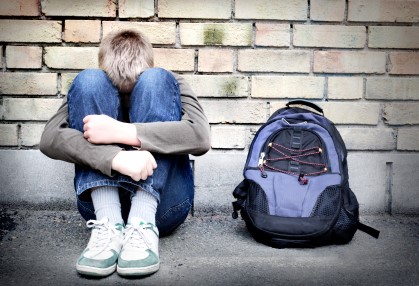
As I was sitting in my office this morning listening to the news, I thought about the unusual stress that today’s children are exposed to. Though your children are born hard-wired to learn and filled with tremendous human potential, I am concerned that the demands of our modern culture may negatively affect both their cognitive and emotional development. It starts with the neuroscience behind how our children’s brains cope with stress.
Undeveloped brains and stress
The immature brain of childhood is extremely vulnerable to stress. This means that stress poses a great deal of risk for a child. Children under the age of six are particularly at risk, as their thinking capabilities are not fully developed. As a result, your child cannot separate events from feelings and self-concept. In fact, they are hampered in moderating their physical reactions, in choosing appropriate behavior in response to stressful events.
For example, modern children who express stress from divorce, abuse, incest, drugs, alcoholism, drive-by shootings, and/or emotional discord within their family unit, have difficulty putting aside these traumas to do other tasks, such as thinking and studying. The emotional insults children often face at school can impact their ability to both focus and concentrate. According to David Elkind in his book The Hurried Child, the stressed child feels restless and irritable and is unable to concentrate, but is not really sure what the trouble is.
Despite these limitations, your child may encounter daily situations and problems that are beyond his capacity to solve, which then leads to stress. On the other hand, his neuro-cognitive development can be optimized when he learns how to effectively cope with stress.
Coping with stress
Young children can deal with stress through regressive behaviors, to both reduce stress and repress vulnerability. For example, your child may isolate from stressful situations by bed wetting, nail biting, hair pulling, and by changes in sleeping and eating patterns. Your older child may show signs of aggressive behavior, shyness, general malaise, or emotional disabilities. In 2010, the American Psychological Association stated, “Common changes (due to stress) can include acting irritable or moody, withdrawing from activities that used to give them pleasure, routinely expressing worries, complaining more than usual about school, crying, displaying surprising, fearful reactions, clinging to a parent or teacher, sleeping too much or too little or eating too much or too little.”
Thus, acting out may help your stressed child reduce his stress and repress his vulnerability. If your child is older, he may use more cognitive stress release strategies to verbally express his concerns. If your child experiences long-term stress exposure — for example, parental separation too early in life, poverty, death, divorce, or mental or physical abuse — he is at risk for developing unproductive or even destructive strategies to stress. Often, these strategies can become relatively intractable, as the sustained stress itself can actually alter impulse control and brain architecture. Moreover, a 2001 study shows that “stress-induced changes in neurobiology underlie the development of psychopathology in those who do develop psychiatric symptoms.” It follows, then, that children’s reactions to stress – rather than the actual stress events themselves – comprise the most significant and influential factor in his future behavior patterns.
In my next post, we’ll take a look at the stress that occurs when there is early separation between mother and child.

